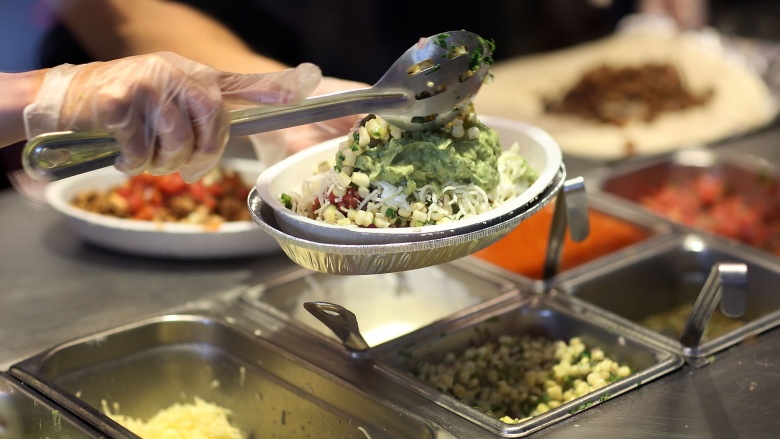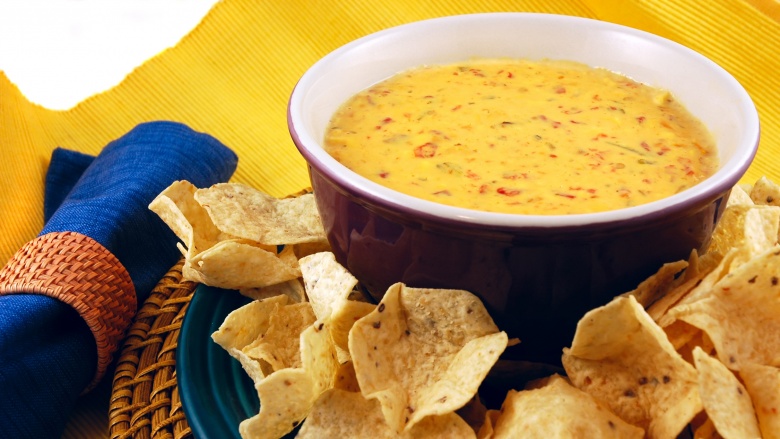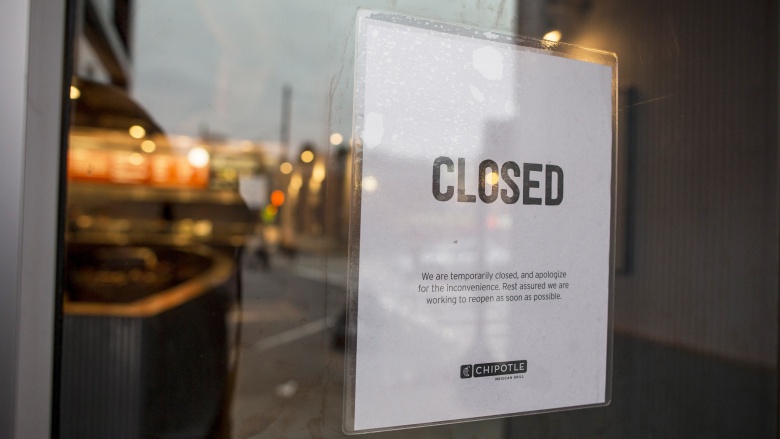The Real Reason Chipotle Doesn't Serve Queso
You might think of queso as a critical part of any Mexican-American meal, or you might just love it so much that things like tacos and nachos are more of a queso delivery system than anything else. If that's the case, you might not be a fan of Chipotle. Known nationwide for their massive meals and their dedication to serving fresh, healthy ingredients, one thing that's missing from their menu is queso. According to Chipotle's founder, Steve Ells, it's never going to be added. Let's take a look at why that is.
The video that explains it all
Every so often, the internet gets up in arms about why Chipotle should add queso to their menu. For Chipotle, it's the equivalent of going to Thanksgiving dinner and being asked by every relative when you're planning on finding a spouse. Fortunately, Chipotle can be a little more direct than you can be with your Aunt Janet, and they've made a short, one-minute video that explains it all to an employee named Larry.
You can watch the video above, but basically it starts with Larry's suggestion that they add queso to the menu. It's met with shock and offense, and Larry's boss explains that since there are clearly no magical cows out there that you can milk for liquid cheese, the only way to get queso is to add all sorts of artificial chemicals and stabilizers to keep it in its pourable form. That, he says, clearly goes against Chipotle's "Food with Integrity" motto, so it won't make it on the menu. Perhaps if they bred some queso-making cows?
'Food with Integrity'
To really understand why Chipotle won't compromise even if it costs customers, you need to take a look at just what "Food with Integrity" means to the chain. According to Ells, it's not just a catchy tagline that he uses to get people in the door with promises of healthy food; it's the entire philosophy that he built his empire on. He spoke about what it all meant to him just after Esquire magazine voted him most inspiring CEO in America in 2012.
For Ells (and Chipotle), it's not just a matter of being healthy. According to him, he prides himself on knowing where all the food comes from, from start to finish, and that means everything from making sure the animals that supply their meat are humanely raised to making sure their produce suppliers are using sustainable farming practices. Most recently, headlines across the country have been filled with concerns over GMOs and in 2015, Chipotle came out and said that they had gotten rid of all ingredients (and suppliers) that used GMOs. Going GMO-free was a big deal for a chain the size of Chipotle, so Chipotle made the most of the spotlight and gave a few reasons for the switch. Chipotle says the long-term environmental impacts of today's GMOs are still unclear. Chipotle promised it would serve food that people could eat with no worries, so it clearly believes the cryptic-sounding ingredients in things like queso are something to worry about.
So what's in restaurant queso that Chipotle doesn't approve of?
Queso is a key menu item for numerous other restaurants, and you might be wondering just what it is you're eating when you order a starter of nachos, salsa, and queso. Qboda is one of Chipotle's competitors, and it serves some of the same types of burritos and bowls that made Chipotle successful. Qdoba, however, has queso, and if you do some digging you can find their ingredients listed online.
The word "processed" appears three times in the list of ingredients, before each type of cheese they use. There's "pasteurized processed Monterey Jack," "pasteurized processed American cheese," and pasteurized processed Swiss and American cheese." So much processing is the first strike against Chipotle's rules about buying from farms and farmers rather than factories. Some familiar ingredients are scattered throughout the list, too, like roasted poblano peppers, roasted tomatoes, and jalapeno peppers, but those ingredients are in the minority.
Other things in that queso you're clamoring for? Sodium phosphate, sodium hexametaphosphate, methyl cellulose, silicon dioxide, corn syrup solids, modified corn starch — and that's just scratching the surface. There's a ton of sodium listed, the word "enzymes" appears over and over again ... you're getting the idea. It's a lot of processing and a lot of additives, even in a world where you expect to see that sort of thing. It's a necessity for restaurants, which rely on being able to serve food efficiently and consistently. But that doesn't align with Chipotle's mission statement, and it's standing by its ideals. No matter how much you think you might like some queso with your burrito bowls, you've got to give Chipotle kudos for ethics.
When ethics and business collide
Chipotle might try to make it seem like it's taking a higher road here, and the chain's hatred of queso isn't the only problem it's facing. In 2015, about a third of Chipotle restaurants dropped carnitas from their menus, citing conflicts with their pork suppliers. Chipotle prides itself on using meat sourced from animals that have been ethically raised.
Admirable enough, sure, but at what point do you compromise business for the ethical high road? Business Insider took a look at Chipotle's slipping profits. Though the profits were also dragged down by the persistent E. coli scare, some customers might also choose Qdoba or other chains over Chipotle bceause of the queso. And even though Chipotle insists that adding queso would compromise their product integrity, they've rethought previous business decisions (like loyalty programs) to try to keep their profits up. Those bits of back-tracking haven't impacted Chipotle's quality control and stand on ingredients yet. We have yet to see how much Chipotle is willing to compromise or innovate to keep its customers happy. Here's hoping it finds a way.



